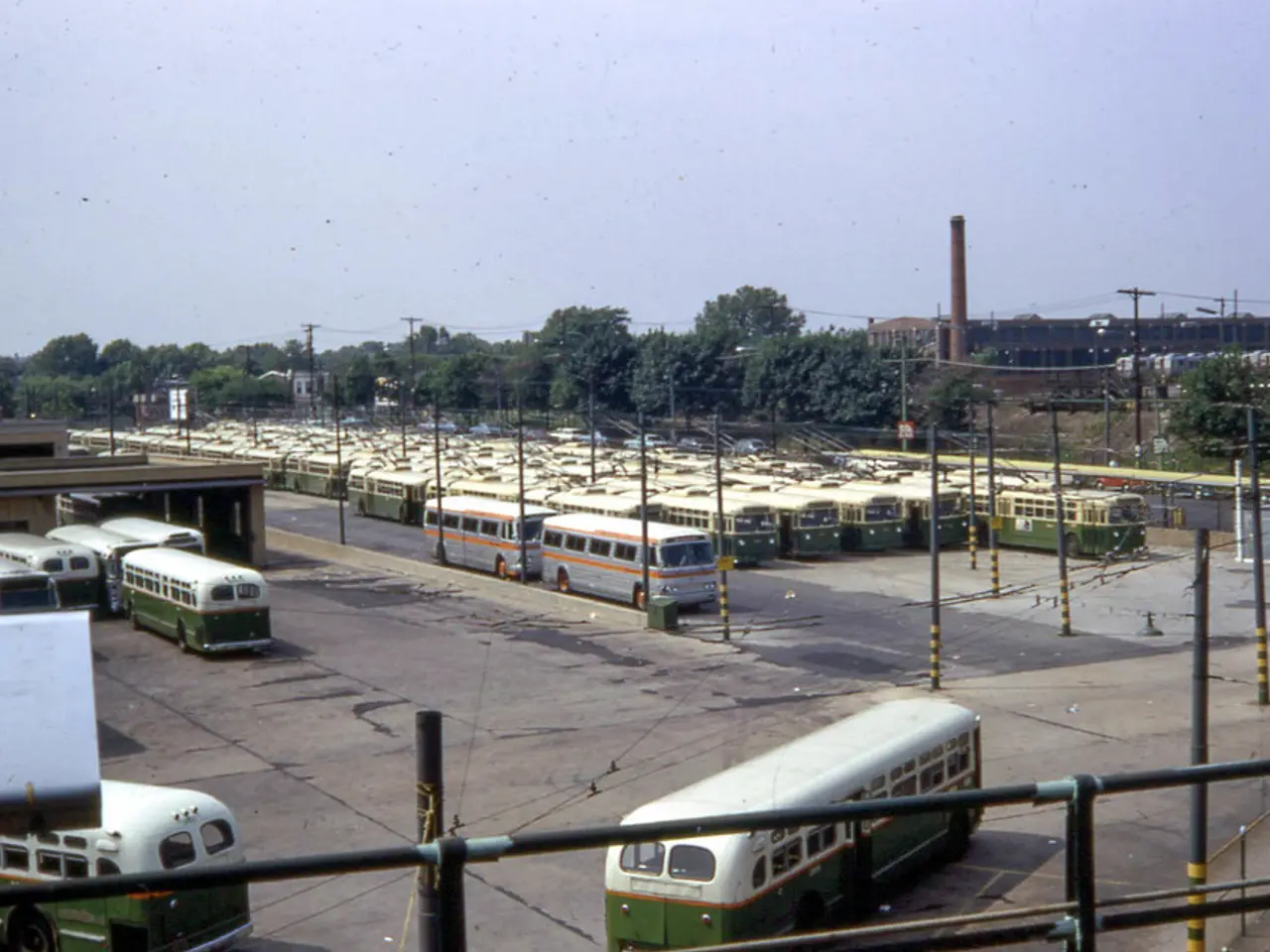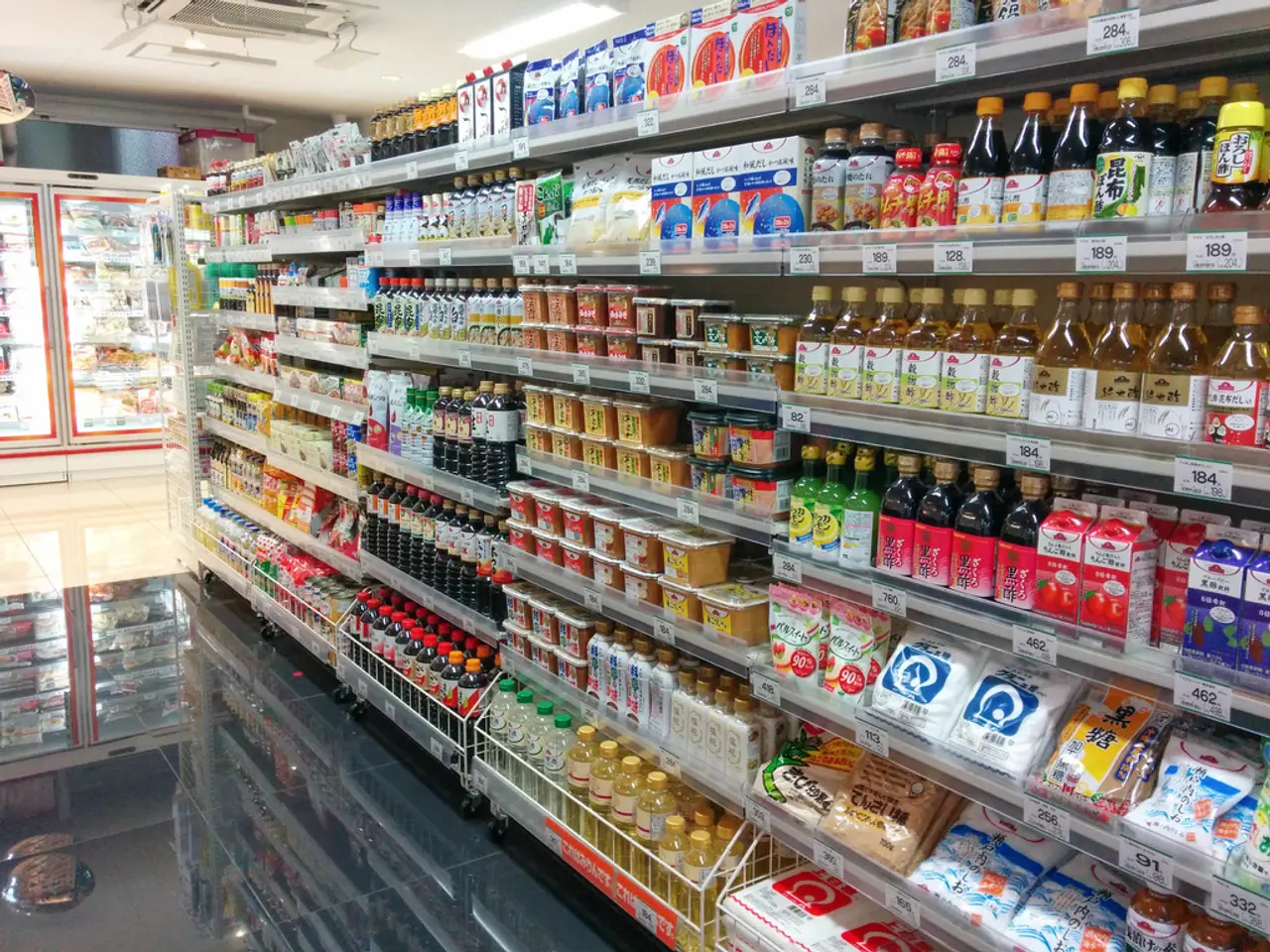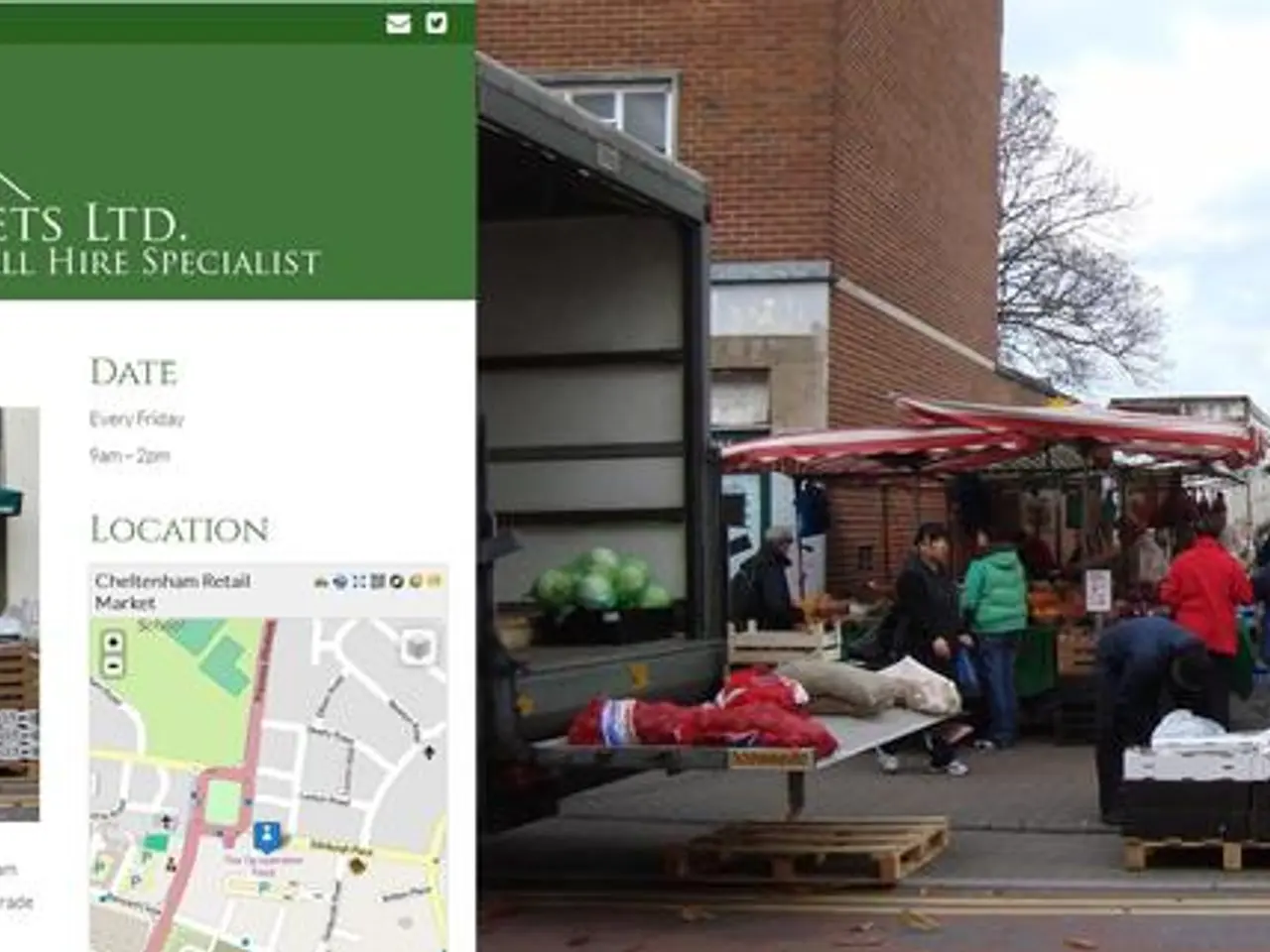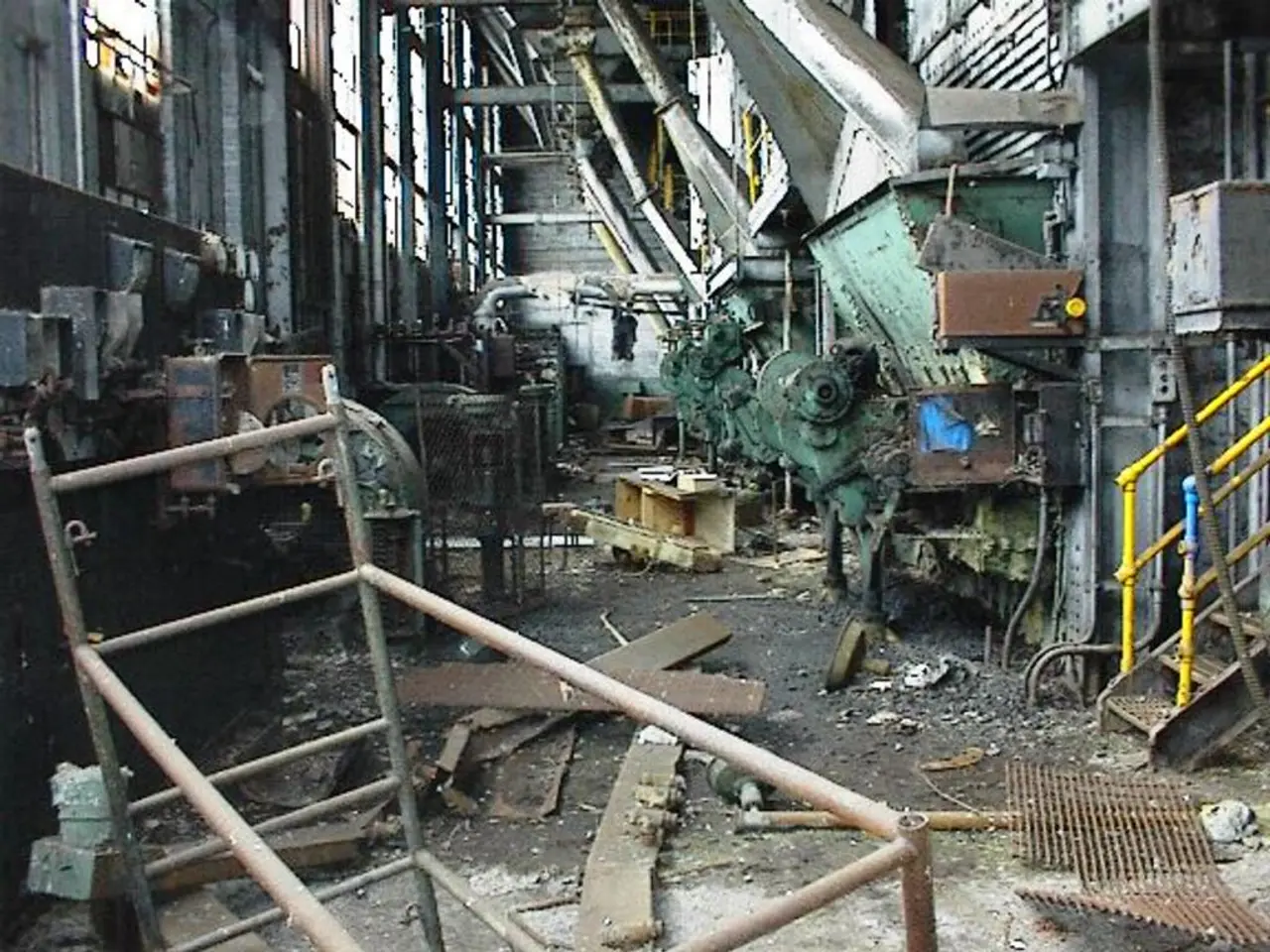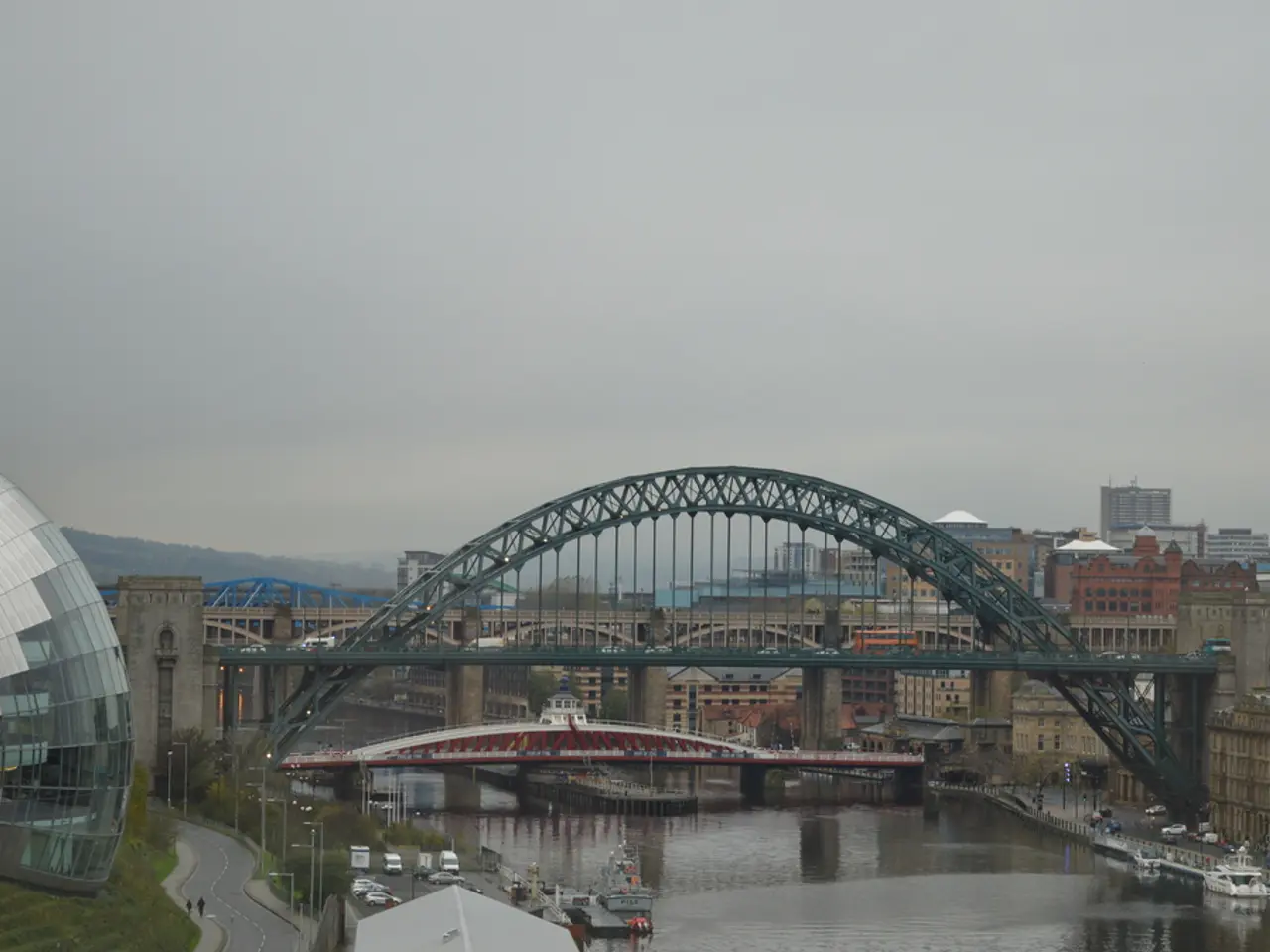Expanding TransLink's fleet with over a hundred Battery Electric Buses (BEBs)
In a significant move towards a greener and more efficient public transportation system, TransLink, the regional transportation authority for Metro Vancouver, has received approval for a C$479 million (US$351 million) investment to expand its battery-electric bus (BEB) fleet. This funding comes from the government of Canada's Community Building Fund (CCBF), administered by the Union of BC Municipalities, pooled by Metro Vancouver's member jurisdictions to support major regional transit projects.
The investment will result in the acquisition of more than 100 new BEBs, with TransLink currently operating 19 battery-electric buses and having 57 more Nova LFSe+ BEBs on order. The expansion plan aims to bring the total BEB fleet to 178 buses by 2030. The delivery schedule, with the new funding, includes 7 buses rolling out in 2025, 64 buses in 2026, and 31 buses in 2027.
To support the expanded BEB fleet, TransLink will also invest in infrastructure. This includes the addition of 64 additional bus chargers and upgrades at the Port Coquitlam Transit Centre. Furthermore, TransLink is building new transit centers, upgrading existing transit centers, and adding more on-route charging stations. The organization is also testing a 60-foot electric trolleybus with in-motion charging capability to diversify its electric fleet.
The 102 new BEBs are projected to reduce TransLink’s greenhouse gas emissions by 8,200 metric tons annually. Over their lifespan, these buses are expected to reduce emissions by more than 140,000 metric tons. On-route charging stations allow buses to recharge in just five minutes, enabling continuous all-day electric service and enhancing operational efficiency.
Mike Hurley, Metro Vancouver’s Board Chair, emphasized the importance of a strong public transportation system for a healthy, livable region. Kevin Quinn, TransLink CEO, expressed gratitude for the investment, stating it will allow for the replacement of aging diesel buses with a diversified fleet. This expansion is a key component of TransLink’s strategy to replace aging diesel buses with a cleaner, more sustainable battery-electric fleet, supporting long-term service growth and contributing significantly to regional emissions reduction goals.
The SkyTrain, another fully electric transit service, is also part of TransLink's commitment to a low-carbon transit system. TransLink currently operates the second largest fleet of fully electric trolley buses in North America, totaling 262 buses. With this investment, TransLink is moving one step closer to a cleaner, more connected future for everyone in Metro Vancouver.
[1] TransLink (2022). TransLink's 10-Year Vision for a Cleaner, More Connected Future. [online] Available at: https://www.translink.ca/about-us/strategic-planning/10-year-vision
[2] Government of Canada (2021). Canada Community Building Fund. [online] Available at: https://www.infrastructure.gc.ca/plan/ccbf-fscf-en.html
[3] Union of BC Municipalities (2021). Community Building Fund. [online] Available at: https://www.ubcm.ca/en/services/grants-funding/community-building-fund
[4] TransLink (2022). TransLink's 10-Year Vision for a Cleaner, More Connected Future. [online] Available at: https://www.translink.ca/about-us/strategic-planning/10-year-vision
- The investment from the Community Building Fund administered by the Union of BC Municipalities will enable TransLink to expand its battery-electric bus (BEB) fleet, resulting in the purchase of more than 100 new BEBs.
- With the addition of these new electric buses, TransLink aims to bring its BEB fleet to 178 buses by 2030, reducing greenhouse gas emissions by 8,200 metric tons annually.
- To support the expanded BEB fleet, TransLink is investing in infrastructure, which includes the addition of 64 bus chargers, upgrades at the Port Coquitlam Transit Centre, and the construction of new transit centers.
- TransLink is also testing a 60-foot electric trolleybus with in-motion charging capability to diversify its electric fleet, further contributing to a low-carbon transportation system.
- Mike Hurley, Metro Vancouver’s Board Chair, highlighted the importance of a strong public transportation system for a healthy, livable region, while Kevin Quinn, TransLink CEO, expressed gratitude for the investment and its potential to replace aging diesel buses with a cleaner, more sustainable BEB fleet.
- TransLink's commitment to a low-carbon transit system extends to the SkyTrain, another fully electric transit service, and the second largest fleet of fully electric trolley buses in North America, totaling 262 buses.
- This investment is a significant step towards TransLink's goal of a cleaner, more connected future in Metro Vancouver, aligning with industry standards in environmental-science, technology, and finance.
